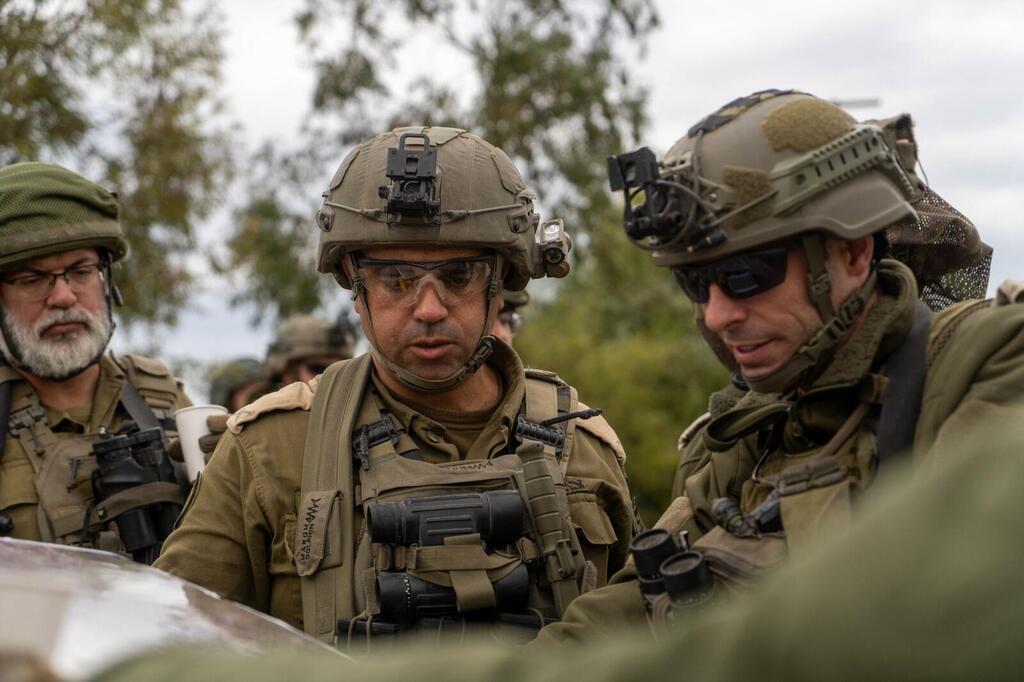Getting your Trinity Audio player ready...
Just hours after the cease-fire – or whatever one might call it – officially went into effect, Doron Sassi, the chairman of the Ramat Naftali community council, was already back in his orchard near the Lebanon border. The sight awaiting him wasn’t one of relief or renewal. Burnt trees and scorched earth, still bearing the wounds of war despite early winter rains, offered little cause for optimism. Sassi expressed some relief at returning to his orchard, but his dissatisfaction with the agreement was evident.
Amos Hochstein speaks about the ceasefire agreement on MSNBC
As the community’s leader, he admitted he had no answers for his fellow residents: not about if or when they could safely return to their homes, nor about when schools and institutions might fully reopen. “I don’t know what to tell them,” he said, his face lined with exhaustion. “Everyone will have to make their own decisions.” As for what the future holds, he added, “I don’t know what the day after will look like.”
Uncomfortable and unsettling as it may be, his words seem to capture the truth of the moment. The cease-fire went into effect at 4 a.m. on Wednesday, and expecting clear answers about the “day after” just eight hours later is, frankly, unrealistic. History offers no precedent for such clarity either.
So, yes, bitterness lingers. How could it not? This situation invites it. There’s no comfort to be found, no easy truths to swallow. Yet the agreement with Lebanon, even if reached under significant American pressure, is a necessary evil – the least bad option. As Eshkol Armoni, a former senior Mossad official, put it, this is a matter of “risk management.” It’s not what some northern residents had hoped for, as perhaps best represented by Eitan Davidi, chairman of the Margaliot community council, who has been vocal in his disappointment. Nor does it meet the expectations of others who have borne the heavy human cost of this conflict. But this is the reality we face.
And let it be said plainly: This is not an ideal agreement, because under these circumstances, no ideal agreement is possible. No deal can guarantee that Hezbollah’s Radwan fighters, disguised as civilians, won’t attempt to return to the villages near the border – and perhaps even succeed. No agreement can ensure that digging a hole to plant a tree won’t reveal the entrance to a hidden tunnel. The ideal solution – conquering all of Lebanon, identifying every Hezbollah operative by name, rounding them up at the Beirut port, and shipping them off to Tunisia – is, to put it mildly, neither realistic nor effective. History has made that clear.
This is not an ideal agreement, because under these circumstances, no ideal agreement is possible. This is the best we can achieve. The alternatives are far worse.
It’s also impossible to locate and destroy every tunnel, every weapons factory, and every ammunition depot – not even at the cost of our finest soldiers. This is the reality we’ve lived with for nearly a century, and it’s unlikely to change in any fundamental way, at least not in terms of the motivations driving these conflicts.
This reality simply shifts its location on the map, moving from one front to another. As one front quiets, another erupts. From Ma’ale Akrabim to Ein Gedi, to Nachal Oz, where Ro’i Rotberg fell, further north to Ein Gev, then through Sderot and Kiryat Shmona, and now to Metula, Margaliot, and Ramat Naftali – the list is partial, random, and endless.
We cannot empty Lebanon of Hezbollah, just as we cannot uproot Hamas from Gaza. What we *can* do, however, is reduce their ability to harm us. That’s the harsh but simple truth, and we must internalize it: This is the best we can achieve. The alternatives are far worse.
Get the Ynetnews app on your smartphone: Google Play: https://bit.ly/4eJ37pE | Apple App Store: https://bit.ly/3ZL7iNv
What’s needed now is to speak honestly—there will be no total victory—and to begin rebuilding homes as quickly as possible so that those who wish to return can do so. At the same time, it must be accepted that not everyone will return, certainly not in the first months, and perhaps not even in the first year. Schools and institutions need to be fortified, infrastructure must be strengthened, and, above all, there must be zero tolerance for any violation of the agreement. We cannot afford to dismiss reports from 18-year-old female lookouts, nor can we silence the Air Force during holidays and special occasions.
And then, with full force, we must turn to the next critical mission: breaking free from the empty rhetoric about Iran and focusing instead on what truly matters—the deal to bring back the hostages, both the living and the dead. Without this deal, it will be impossible to restore any semblance of normalcy. No one can be left behind, no matter the cost.







